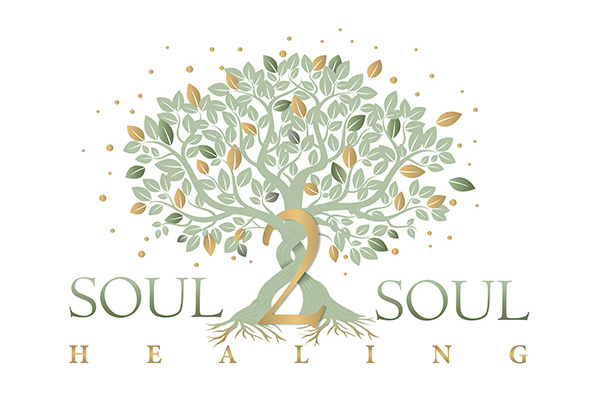Grief is one of the most painful life experiences you can go through, and the grieving process can take a significant toll on any relationship. Maybe you lost someone close to you and your partner isn’t sure how to respond to your grief. Maybe your partner lost a loved one and you’re trying to show support without being overbearing. Sometimes, a couple both grieves the same person. No matter what you’re going through, grief has the power to change the dynamic of your relationship.
Knowing how to cope with grief and loss as a couple is the key to getting through this tragic event without drifting apart. As always, communication is so important for every couple. Whether you’re experiencing grief yourself or watching your partner move through the grieving process, openness and honesty will help you maintain a strong relationship.
What to Expect as You Grieve
Grief is a complicated emotional process that unfolds differently for everyone. Many people are familiar with the five stages of grief: denial, anger, bargaining, depression, and acceptance. However, grief is rarely if ever this predictable.
Mourning is not a linear process. You shouldn’t expect yourself to move seamlessly from anger to sadness to acceptance. One day, you might be overcome with feelings of hopelessness. The next, you may feel completely numb and disconnected from your loss. The emotions can fluctuate from day to day or even from hour to hour. You can practice self-compassion by allowing yourself to move through your emotions without trying to force them into a specific timeline.
Helping a Partner Through the Grieving Process
Seeing your partner in grief can be incredibly difficult. You don’t want them to be in pain, and you hate feeling powerless to stop their grief. There’s no controlling grief, though, so you simply have to let your partner move through the process. Here are three things you can do if your partner is experiencing grief:
Step back and listen.
It’s natural to see someone in pain and to want to “fix” the problem. When your partner expresses their grief, your first impulse may be to try to make them feel better or make their pain go away. However, they have to feel their grief in order to truly process it.
When your partner is grieving, resist the urge to find a solution. Instead, just be a steady and comforting presence. If your partner wants to talk about their grief, offer a listening ear. If they don’t want to talk, become comfortable with silence.
Show practical support.
Grief greatly impacts your ability to take care of other areas of your life. You can show support to your partner by taking on the tasks that they’re too drained to handle. You could cook meals, complete chores around the house, schedule appointments, or take care of any other day-to-day tasks so that your partner can navigate the grieving process without feeling like their entire life is falling apart.
Be patient.
Grief doesn’t happen on a linear timeline, and no two people experience grief in exactly the same way. When your partner is grieving, resist the urge to find a solution. Instead, just be a steady and comforting presence. If your partner wants to talk about their grief, offer a listening ear. If they don’t want to talk, become comfortable with silence. Being patient with your partner as they grieve is vital. Allow them all the time they need to process their loss.
This can be especially challenging when a couple is grieving together. You may heal faster than your partner, or you may feel like your partner is moving on too quickly. Recognizing that everyone handles grief in their own time is the key to coping as a couple.
Navigating the Grieving Process Yourself
If you’re experiencing grief yourself, you might feel completely alone in your pain. Your partner may not understand what you’re going through, but they’re here to support you. Here are three things you can do to stay strong as a couple as you grieve:
Don’t feel guilty for needing support.
Many people isolate themselves when they grieve because they feel guilty for asking for support. Your partner wants to help you, though. Just like you offer support when they’re unwell, your partner is here to help as you go through this painful experience. Try not to feel guilty for asking for support or for leaning on your partner as you grieve.
Tell your partner what you need.
Communicating in words can feel extremely challenging when you’re overwhelmed by grief. However, telling your partner what you need from them is essential for maintaining your health as a couple. Your partner may have the best possible intentions, but they can’t always anticipate your needs. If you need them to give you some space, let them know. If you want them to sit in silence with you, communicate that to them.
Allow yourself to grieve on your own timeline.
Just like your partner needs to be patient with you as you mourn, you also must be patient with yourself. Don’t try to force yourself to feel better or to move on within a certain timeline. Grief unfolds on its own, and all you can do is experience your emotions without judgment.
Dealing With an Unsupportive Partner
Unfortunately, not everyone is able or willing to offer the support their loved one needs during the grieving process. Your partner might be uncomfortable with the concept of grief and loss, or they may not know what to say to comfort you. If your partner tends to isolate or disconnect when going through a difficult time, you might feel like they’re pulling away from you when you need them the most. This is especially challenging when you’re both mourning the same person.
Open up to your partner about how you’re feeling. If they have a different style of grieving, they may not recognize what kind of support you need. When dealing with loss, everyone is stretched thin emotionally. Try to be extremely clear about your support needs when communicating with your partner so that they don’t have to guess.
If your partner continues to be unsupportive, look for support outside of your relationship. Lack of support is a serious issue in your relationship that should be addressed, but your priority right now is to get the help you need to process your grief. You could lean on family or friends during this time, or you could talk to a counselor about how you’re feeling.
How Loss Impacts the Entire Family
Loss can dramatically transform a family unit. If you lose someone in your immediate family, nothing feels the same. The loss of that person’s presence can create a feeling of emptiness within your family, especially in the early stages of grief. Family roles can also shift during the grieving process. The family member who always supported everyone else may now need the most support themselves. Because grief hits everyone differently, family members have to be compassionate with one another.
Family therapy can be an excellent way to explore how loss has impacted your family structure. During counseling, everyone has an opportunity to express their emotions. Each family member should feel seen and heard. Your counselor will help you and your family find ways to support one another and keep moving forward after your loss.
Individual therapy is important for processing a loss, too. If you feel like you can’t move through the grieving process alone, a counselor can help. Your therapist will offer a safe and supportive space for you to express yourself, and they can help you identify the steps you need to take to heal. Many people find grief support groups to be helpful as well. Connecting with others who are also mourning can help you feel less alone in your pain.
Couples Therapy for Grief
Losing a loved one can change you forever, and it can profoundly impact your relationship. Some people lean on their partner when going through grief, and others pull away. When one partner is grieving and can’t give their full energy to the relationship, the other partner may start to feel isolated or rejected. If you’re both grieving the same person, you might both be so emotionally drained that you just can’t show support to one another.
Couples therapy is a valuable resource for learning how to cope with grief and loss as a couple. You shouldn’t expect yourself to have perfect communication skills or perfect coping skills when you’re in such intense emotional distress. If you’re going through the grieving process as a couple, a mental health professional can provide you with the support you need to heal.
You can reach out to a couples therapist if you’re in the height of your grief, or you can start couples therapy if you feel like past grief has had a long-term impact on your relationship. Your counselor will help you understand and process your grief. Then, they’ll help you and your partner discover ways to strengthen your bond and improve your communication.
You may feel like nothing will be the same between you and your partner after a loss, but there is a path forward. By allowing yourself and your partner to grieve and seeking professional support when needed, you’ll take the vital first steps toward healing as a couple.
If you’re looking for a couples therapist in El Segundo CA, Soul 2 Soul Healing is here to help. We understand how grief can take a toll on a couple, but we have the tools and resources you need to make it through this challenging time. Contact us today to speak with a couples therapist in El Segundo.



